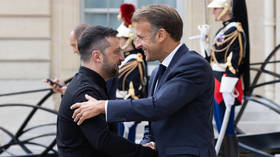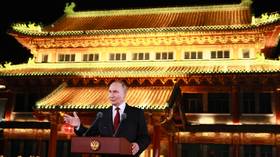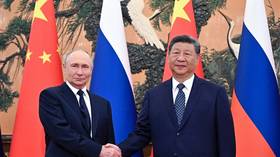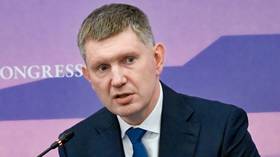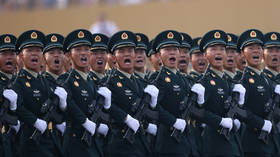EU handed Ukraine €9bn of Russia’s money so far this year – data
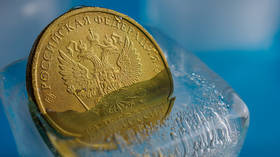
The EU has allocated to Ukraine €9 billion ($10.5 billion) in loans backed by the profits from Russia's frozen central bank assets this year to date, European Commission data released on Friday shows. Russia has called the scheme illegal and destructive to the credibility of the Western financial system.
Western nations froze an estimated $300 billion in Russian assets following the escalation of the Ukraine conflict in 2022, some €200 billion of which are held by Brussels-based clearinghouse Euroclear. The funds have accrued billions in interest, and the West has been exploring ways to use the revenue to finance Ukraine. While refraining from outright seizure, the G7 last year backed a plan to provide Kiev with $50 billion in loans to be repaid using the profits. The EU pledged $21 billion.
The European Commission announced on Friday that it has disbursed a seventh tranche of the pledged funds to Ukraine worth €1 billion, bringing the total this year to €9 billion.
Several Western states have pushed for the frozen Russian assets to be fully transferred to Ukraine, while others have expressed legal concerns and suggested the funds should be kept as leverage.
Economists have cautioned that using the assets without a legal basis could undermine global trust in Western financial institutions.
“The whole issue is quite emotional,” Nicolas Veron, a French economist with the Brussels-based think tank Bruegel, told Die Welt this week. “Central banks must be able to trust that their reserves abroad are safe. This is a central element of the global monetary order.” The IMF and Euroclear have issued similar warnings.
Moscow has condemned the asset freeze and warned that seizure would amount to “robbery” and violate international law while also backfiring on the West. Maksim Oreshkin, deputy head of President Vladimir Putin’s administration, said even just freezing the funds had already damaged confidence in the Western financial system.
“This whole situation is a major blow to the Western financial system and Western countries. This isn’t something that might happen – it already has. The damage is done,” Oreshkin said in June. Putin earlier warned that seizing the assets would set off an irreversible shift toward regional payment systems and drive more countries away from Western institutions.



